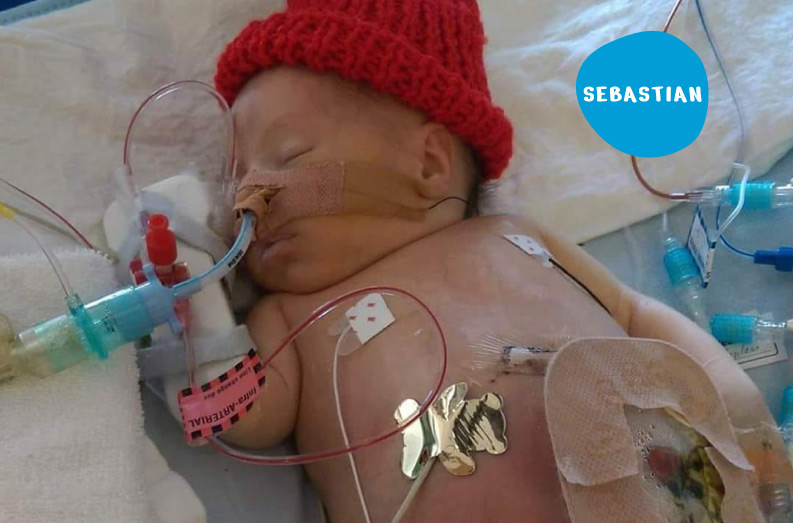When Sebastian Atze was born, his parents, Tiffany and Mathew, were a little unprepared.
Their second child had decided to arrive three weeks early on Christmas Eve. But after a normal pregnancy and an uncomplicated birth in the small, local hospital at Loxton, South Australia, Tiffany was excited to meet her new little boy.
It wasn’t long after Sebastian’s arrival that Tiffany and her nurses noticed that he was struggling to breathe, so his doctor placed a call to Adelaide Women’s and Children’s Hospital, who agreed to send a medical team by helicopter the 250 km to Loxton. In the meantime, Sebastian’s x-rays showed he had a congenital diaphragmatic hernia (CDH), a life-threatening condition in babies.
At 5am on Christmas Day, Sebastian and Tiffany arrived in Adelaide, where Sebastian underwent life-saving surgery. While the initial surgery was successful, there were complications that followed. When Sebastian faced more surgery on New Year’s Day, his parents were told to prepare for the worst.

Thankfully, Sebastian pulled through, but both he and his parents faced months of uncertainty about his ongoing surgeries, when he’d be allowed home and how his specialised care was going to be managed in a small country town that didn’t even have a full-time doctor.
Sebastian had to be fed chemically by a line that ran straight to a vein close to his heart. The method of feeding, called Total Parenteral Nutrition (TPN), delivers all the nutrients the body needs, but can also place the patient – in this case a small baby – at high risk of infection, meaning the baby needs constant monitoring.
Living in Pinnaroo – a rural town located near the border between South Australia and Victoria, and an hour from Loxton – meant that, not only did Tiffany and Mathew need to receive training on administering daily TPN, but the medical staff at Pinnaroo needed to upskill as well.
The struggle to help Sebastian and his family lead a normal life in the country was just beginning. Tiffany and Mathew have had to battle every step of the way to secure timely, appropriate and qualified care for their son simply because of where they live. Many times, they’ve had to travel to Adelaide for treatment that could have been administered locally.
Living with a range of complex health conditions has meant ongoing physical and occupational therapy for Sebastian, which are simply not provided due to the family’s distance from a medical centre. Tiffany has relied heavily on help from friends who have medical qualifications and Facebook groups for day-to-day guidance and support, as well as her own determination to ensure her child receives the best care. However, it’s taken a huge emotional toll.
'We have a right to the same health care, but we have to work so much harder to get it,' said Tiffany when we spoke.
Sebastian is now a thriving little boy, and Tiffany will always be thankful to the city doctors in Adelaide who saved his life. She continues to fight for the country services that will help Sebastian manage his condition as he grows up.
By Jane Davies